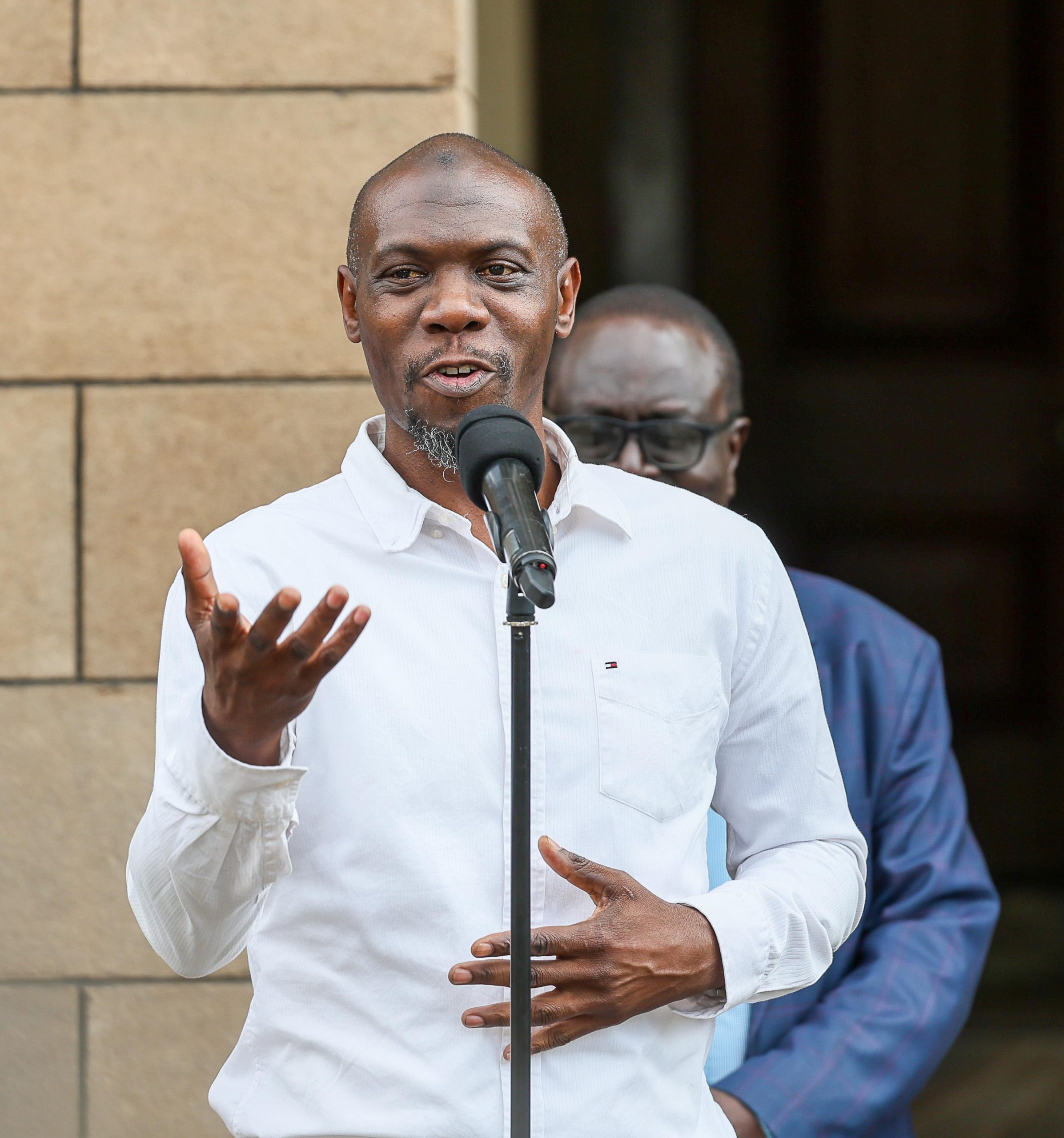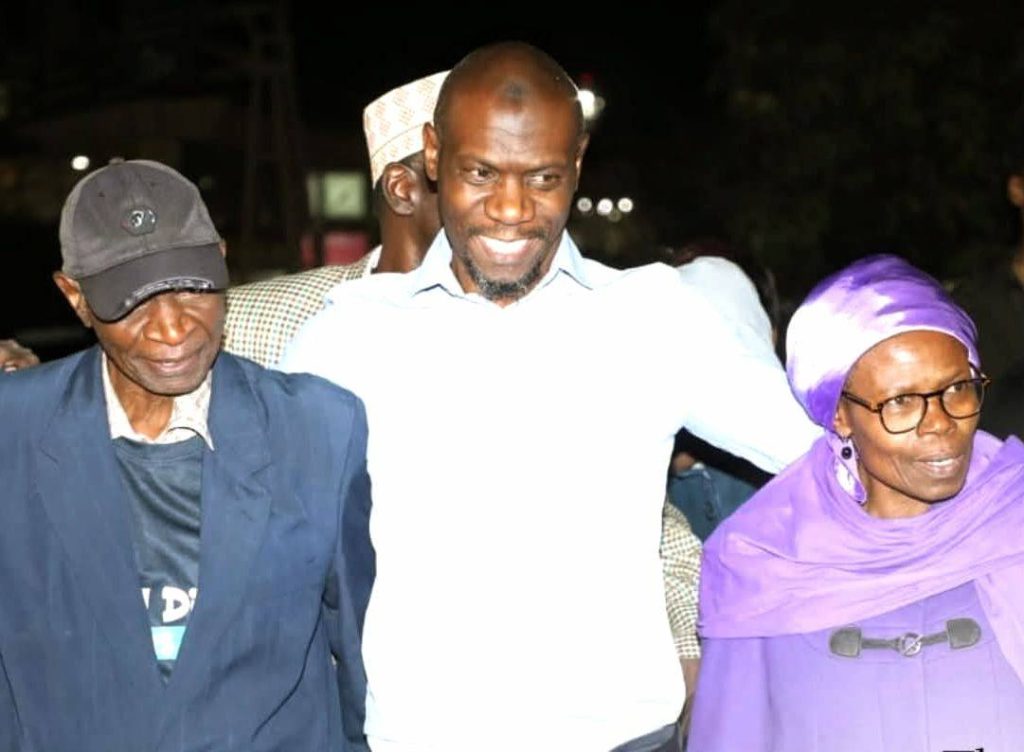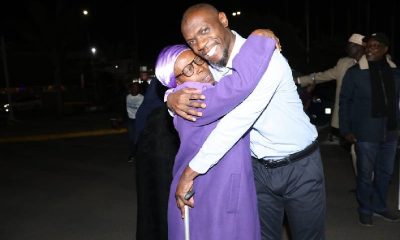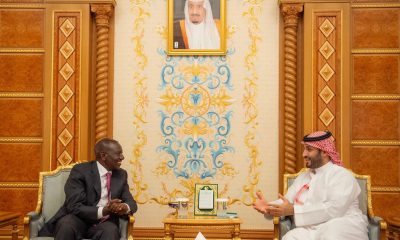News
Stephen Munyakho Breaks Silence on Fight Over Salary That Landed Him on Death Row

Stephen Munyakho, the Kenyan man who spent more than a decade on death row in Saudi Arabia, has finally shared the real story behind his shocking imprisonment.
While appearing on JKL Live on Citizen TV, Munyakho revealed that a salary dispute with a colleague is what spiraled into a deadly altercation that changed his life forever.
The long silence surrounding the incident that began in 2011 has now been shattered. Munyakho’s account sheds light on the hidden struggles many Kenyan migrant workers face in Gulf countries—unpaid dues, mistreatment, and fights that escalate beyond control.
Stephen Munyakho Explains What Led to Deadly Fight in Saudi Arabia
Stephen Munyakho, now known by his Muslim name Abdul Kareem, described in vivid detail how a salary-related disagreement with a colleague named Abdul Halim turned violent. Both men were working in the accounts department of a restaurant in Saudi Arabia when the clash happened on the night of April 9, 2011.
Munyakho stated that he was trying to leave work to collect his salary, but his Yemeni colleague refused to let him go. Halim reportedly hurled insults that Munyakho did not fully understand, provoking his anger. However, the disagreement didn’t stop at words.
“He is the one who started the fight,” Munyakho emphasized. “The knife was his. He tried to stab me first. After he used it on me, I used it on him.”
The confrontation quickly turned physical. In the chaos, Halim suffered a single stab wound to the chest, while Munyakho sustained injuries to his hand and thigh.
Despite being seriously hurt himself, Halim delayed going to the hospital—a mistake that proved fatal. According to Munyakho, the death was not directly from the stabbing but due to blood loss from delayed medical attention.
“It was not intentional. It was just a mistake,” Munyakho said. “We had a misunderstanding which ended in a fight, and then it escalated to stabbings.”
A Decade Behind Bars and a Death Sentence
After the incident, Saudi authorities arrested and charged Munyakho. He was convicted of manslaughter, but the charge was later upgraded to murder. This led to a death sentence, putting his life in limbo for years.
While in prison, Munyakho converted to Islam and became known as Abdul Kareem. He held onto hope that he would one day return home.
The turning point came when the victim’s family agreed to accept diyya—an Islamic form of blood money that allows forgiveness in exchange for financial compensation. With support from the Kenyan government and the Muslim World League, over Ksh129 million was raised to secure Munyakho’s freedom.
The final step before his release was performing Umrah, a pilgrimage to Mecca. On July 22, 2025, Munyakho was officially freed. He landed in Kenya early Tuesday morning, bringing a close to a 14-year nightmare.
Government Support and a Cautionary Tale
Prime Cabinet Secretary and Foreign Affairs Minister Musalia Mudavadi was present at Jomo Kenyatta International Airport to receive Munyakho. His case had drawn attention from human rights activists, religious leaders, and Kenyan diaspora networks who rallied to secure his release.
Munyakho’s experience is a stark reminder of the dangers faced by many Kenyans working in the Gulf. Cases of unpaid wages, abuse, and even death are not uncommon. His account calls for stronger protections for migrant workers, including better dispute resolution and embassy support.
What began as a fight over salary turned into a decade-long fight for justice. Munyakho’s story is not just about survival—it’s about the urgent need for better treatment of Kenyan workers abroad.
Kenya Insights allows guest blogging, if you want to be published on Kenya’s most authoritative and accurate blog, have an expose, news TIPS, story angles, human interest stories, drop us an email on [email protected] or via Telegram
-

 Grapevine1 week ago
Grapevine1 week agoAlleged Male Lover Claims His Life Is in Danger, Leaks Screenshots and Private Videos Linking SportPesa CEO Ronald Karauri
-

 Lifestyle2 weeks ago
Lifestyle2 weeks agoThe General’s Fall: From Barracks To Bankruptcy As Illness Ravages Karangi’s Memory And Empire
-

 Grapevine5 days ago
Grapevine5 days agoRussian Man’s Secret Sex Recordings Ignite Fury as Questions Mount Over Consent and Easy Pick-Ups in Nairobi
-

 Investigations2 weeks ago
Investigations2 weeks agoEpstein Files: Sultan bin Sulayem Bragged on His Closeness to President Uhuru Then His Firm DP World Controversially Won Port Construction in Kenya, Tanzania
-

 Investigations2 days ago
Investigations2 days agoMulti-Million Dollar Fraud: Three Kenyans Face US Extradition in Massive Cybercrime Conspiracy
-

 Investigations2 weeks ago
Investigations2 weeks agoEpstein’s Girlfriend Ghislaine Maxwell Frequently Visited Kenya As Files Reveal Local Secret Links With The Underage Sex Trafficking Ring
-

 News2 weeks ago
News2 weeks agoState Agency Exposes Five Top Names Linked To Poor Building Approvals In Nairobi, Recommends Dismissal After City Hall Probe
-

 Business1 week ago
Business1 week agoM-Gas Pursues Carbon Credit Billions as Koko Networks Wreckage Exposes Market’s Dark Underbelly
























